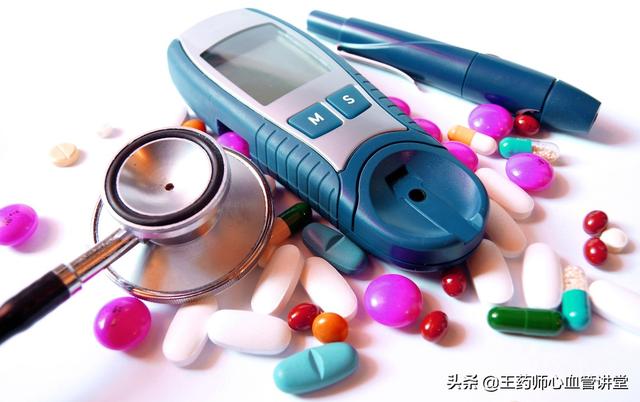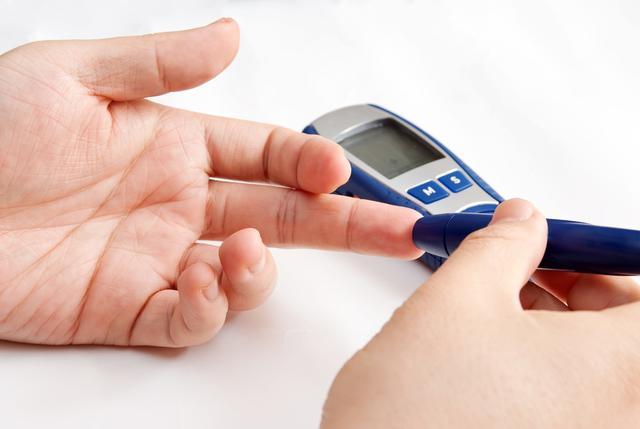What about the epidemic that never ended and the diabetes that never went to the hospital?
The epidemic has kept many people at home and afraid to go out. At this particular time, what people are most afraid of is getting sick, and even a minor illness like a cold can cause panic. And people with chronic diseases like diabetes and hypertension will also be too scared to go to the hospital.
What about the epidemic that never ended and the diabetes that never went to the hospital?
This outbreak has made diabetics become extraordinarily fearful, partly because they are afraid to go to the hospital for review, and partly because the confirmed cases of neocoronavirus pneumonia this time around have a more severe morbidity, a higher risk of death, and a greater probability of becoming critically ill when they are comorbid with diabetes mellitus. Previously, a study found that among the 40 death cases of new coronary pneumonia, 47.8% of them had diabetes mellitus in combination.
For now, experts believe that high blood sugar inhibits phagocytosis of leukocytes and reducesprecautionaryThe ability of the virus, coupled with the fact that diabetic patients themselves are in poor physical condition, prone to systemic infections, and often have malnutrition, which will further reduce the body's ability to resist the virus, more susceptible to infection and suffer serious attacks. Therefore, diabetic patients need to take adequate protective measures during epidemics.

What if I am afraid to go to the hospital for diabetes? In fact, it is not recommended to go to the hospital in the near future for diabetics whose condition has been stabilized under control. Hospitals are places where new coronavirus infections are high, and diabetes, as a high-risk group, faces a higher risk of infection, making it all the more important to stay away from such places. This group of patients can follow the previous medication and ensure regular medication every day to ensure good control and stabilization of blood sugar within the desired range. In addition, we need to pay attention to daily diet and living habits, diet to strengthen nutrition, to ensure food diversity, to meet the body's nutritional needs; in addition, we should pay attention to dietary hygiene, meat fully cooked before eating, raw fruits and vegetables should be thoroughly washed, raw food and cooked food chopping boards and knives should be used separately; as much as possible to increase the amount of activity, remember to be sedentary; regular work and rest, to ensure adequate sleep; to maintain a good state of mind and so on.
In addition, diabetic patients in life, we should pay attention to actively prevent the new crown pneumonia infection, to do often ventilation, to maintain indoor air circulation; diligent hand washing, to ensure that the hand must be fully washed before meals and after the toilet; pay attention to warmth, prevention of colds and so on. This is what diabetic patients have to do.

For patients with uncontrolled blood glucose, recent instability, signs of complications, or suspected infection with the new coronavirus, it is important to seek prompt medical attention. However, diabetic patients are required to take protective measures when going to the hospital. First of all, when you go out, you must wear a good mask and choose a hospital that is not a hospital for the treatment of new coronavirus. Do not linger on the way to the hospital, stay away from crowded places and avoid communication with outsiders. In particular, stay away from people coughing and sneezing, do not touch and avoid unnecessary contact. When you go home, you should pay attention to the clothing and shoes and bring back the medication to be sterilized, wash your hands adequately, and dispose of the used masks sealed. In short, it's all about taking adequate precautions.
I am Pharmacist Wang, insisting on spreading the knowledge of cardiovascular and cerebrovascular diseases with simple and easy-to-understand words, and dedicating my own small efforts for a healthy China. If you think my answer is helpful to you, please leave a like! In addition, if you still have questions related to precautions for diabetic patients during the epidemic, welcome to leave a message and we will discuss together!
Dr. Sun continues to answer your questions and leave answers to questions related to diabetes, obesity, hypertension, coronary heart disease and protection!
Due to the impact of the epidemic, the hospital fever people gathered, and indeed not a place for chronic patients to go, due to the relatively poor resistance of the body of diabetic patients, very easy to combine viral and bacterial infections. And according to statistics, combined with the new crown pneumonia infection of diabetic patients is very easy to aggravate the condition, leading to the emergence of serious illness.
Transportation and travel constraints also constrain diabetic patients from visiting hospitals.
That's why we've launched an online consultation service to address the issue of home care for people with chronic illnesses such as diabetes.
We have been educating about diabetes so that our diabetic friends can learn about diabetes diet and exercise, the use of medications and the management of simple conditions, in the hope that our diabetic friends and their families can become their own diabetologists.
Usually, patients with home treatment should have previously visited the specialized outpatient clinic in the hospital, and the specialist has assessed your condition and formulated a more appropriate treatment plan, such as insulin treatment plan, multiple oral drug treatment plan and so on. If your condition is relatively stable, your diet is regular, and you are able to keep exercising at home, you may not need to go to the hospital, and you may be able to deal with some of the problems on your own.
Many tests are not required to be done frequently. For the tests of glycated hemoglobin, blood lipids, kidney function, electrocardiogram, etc., it is usually required to be done once every 3 months - half a year.
During this epidemic, the more troublesome is that part of the diabetic friends who usually do not care too much about their physical condition, the blood sugar control is very poor, and if there is high blood pressure, coronary heart disease and other chronic diseases, the emergence of physical discomfort, it may be a more serious situation.
For simple diabetics, with regular medication, there is usually no significant hyperglycemia, and if the check blood glucose rises gradually, adjusting the dosage of medication and diet will bring it down gradually. The most important thing to be alert to is the possibility of severe hypoglycemia, so panic, sweating, hunger or any discomfort, timely measurement of a blood glucose is very necessary, in order to identify with other acute diseases such as heart attack, gastritis and other diseases, conducive to timely correction.
For people with diabetes, it is very important to have adequate medication and then a blood glucose meter on hand during an epidemic so that you can keep track of your blood glucose in different conditions, and make adjustments or contact your supervising physician if there are any problems that need to be dealt with.
Of course, if there is persistent panic, chest tightness and other symptoms, measuring blood sugar is not low, after eating a meal can not be relieved, we must think of acute cardiac ischemia, we must promptly call the 120 emergency number, open the green channel, to rule out the acute infarction, and be able to get timely treatment. Do not think that all outpatient clinics are closed during the hospital epidemic, the emergency room is non-stop, all emergency facilities have not stopped, all the medical staff are at work, just may be in different positions.
I'm Dr. Sun, pay attention to Dr. Sun talk about sugar, continue to learn more quality health knowledge, help please like, have questions please leave a message, will reply!
Thanks for the invite:
There is no end in sight to the epidemic, and diabetics need to stay on their medication. Consult your specialist online, who will be sure to give you guidance on your medication.
If you need to go to the hospital for regular blood sugar tests, you can do so as long as you take good personal precautions and wear a good mask!



I have an old friend who has been diabetic for more than ten years to control herself? She has a cure: not only does she have a retired salary, she also has a low income? So she's not afraid of anything!
A few suggestions for diabetic patients who need to take medication to treat their diabetes and visit the hospital for follow-up prescriptions during the epidemic:
1. Wearing a good mask is one of the most important precautions, and according to what we know so far, droplets are the main means of transmission. 2. If the distance to the hospital is not too far, it is recommended that you walk or take a private car to minimize close contact with other people. 3.
3. During the special period, hospitals will not be full of patients and people will not go to hospitals as a last resort, but if they need to go, they should not be afraid to do so. Patients should be assured that hospitals will adopt more effective sterilization measures.
4. Please wash your hands carefully when you return home after prescribing medication. It is recommended that you rub your hands carefully with soap under running water.
5. Over time, we learned that most of the deaths were among older persons over 60 years of age with underlying medical conditions such as diabetes and hypertension.
These elderly people have weak resistance and are advised to stay at home at this time of the year, not to go out, and instead have a healthy family member pick up their medication for them.
It is only a matter of time before the epidemic is wiped out by us! I believe that day is not far away! The weather is getting warmer. Spring is just around the corner!
The epidemic is not over, or not to go for good, wait for the epidemic completely disappeared and then go is not too late, more than a month have waited for, still worse than these last days? It's better to be safe than sorry. ......
Epidemic period, affecting many people, especially patients with chronic diseases, that is, the need for regular review, and the need to take medication on time, and for diabetic patients how to monitor their own blood glucose?
For diabetic patients to eat regularly and quantitatively, on the basis of controlling the total energy to supply the appropriate proportion of carbohydrates, fats, proteins, as well as dietary fiber and micronutrients. Next is exercise, aerobic and flexibility exercises are recommended. Finally, if frequent hypoglycemia (hunger, panic, sweating, etc.), or thirst, dry mouth, polyuria, blurred vision, dizziness, etc. still need to go to the hospital for timely testing of blood sugar.
Affected by the epidemic, we are all trapped at home, can not go out, is the biggest protection for us, you are at home, to check their blood sugar value is normal, and strict control of diet, take medication on time, if the body appears to be uncomfortable, or to go to the hospital in a timely manner, although the country emphasizes to stay at home, but this is not necessarily, everything is still to their own body is the main, uncomfortable, go to the hospital in a timely manner! Now each hospital disinfection measures to do more perfect, after all, there are doctors and patients in the hospital, they also need to protect themselves, and now have a special fever clinic, general patients and fever patients are separated from the clinic, you go to the hospital to check, as long as you do a good job of protective measures on it, and finally, I wish you good health!
1. Diet control, sweets absolutely can not eat, rice, noodles to self-control amount. You can eat more grains and cereals.
2. Stick to your usual hypoglycemic medication.
3. If you have a blood glucose meter, monitor your blood glucose daily.
Blood sugar will be difficult to control, the condition will worsen and the consequences will be unimaginable. Therefore, it is necessary to go to the hospital to get medication and check, take medication on time and according to the dosage, and take no chances.
This question and answer are from the site users, does not represent the position of the site, such as infringement, please contact the administrator to delete.